Ageing Well National Science Challenge
 The Ageing Well National Science Challenge vision is to add life to years for all older New Zealanders. This will be achieved by harnessing science to sustain health and wellbeing into the later years of life. The mission of Ageing Well is to push back disability thresholds to enable all New Zealanders to reach their full potential through the life course with particular reference to the latter years of life.
The Ageing Well National Science Challenge vision is to add life to years for all older New Zealanders. This will be achieved by harnessing science to sustain health and wellbeing into the later years of life. The mission of Ageing Well is to push back disability thresholds to enable all New Zealanders to reach their full potential through the life course with particular reference to the latter years of life.
Email ageingwell@otago.ac.nz
Web ageingwellchallenge.co.nz
ASPIRE Aotearoa
 ASPIRE Aotearoa is a partnership between major New Zealand research groups carrying out research to help achieve the Government's goal of a tobacco-free Aotearoa. ASPIRE Aotearoa brings together leading tobacco-free researchers and health service groups in New Zealand and strengthens existing collaborations. ASPIRE Aotearoa was awarded the status of a University of Otago Research Theme in November 2011.
ASPIRE Aotearoa is a partnership between major New Zealand research groups carrying out research to help achieve the Government's goal of a tobacco-free Aotearoa. ASPIRE Aotearoa brings together leading tobacco-free researchers and health service groups in New Zealand and strengthens existing collaborations. ASPIRE Aotearoa was awarded the status of a University of Otago Research Theme in November 2011.
Email aspire.aotearoa@otago.ac.nz
Web aspireaotearoa.org.nz
The Burden of Disease Epidemiology, Equity and Cost-Effectiveness Programme (BODE3)
 The Burden of Disease Epidemiology, Equity and Cost-Effectiveness Programme (BODE³) was a Health Research Council funded research programme. It has studied the health and wider societal gains, costs, cost-effectiveness and equity impacts of health sector interventions, and has built capacity in modelling of health sector interventions.
The Burden of Disease Epidemiology, Equity and Cost-Effectiveness Programme (BODE³) was a Health Research Council funded research programme. It has studied the health and wider societal gains, costs, cost-effectiveness and equity impacts of health sector interventions, and has built capacity in modelling of health sector interventions.
Health Research Council funding for the BODE3 Programme officially finished in January 2022. This programme of research has produced important evidence on the health impacts and cost effectiveness of a range of policies and interventions for Aotearoa New Zealand. It has also supported many staff in developing skills in the field of epidemiological/health economic modelling. Going forward, there are a number of modelling research projects that will be continuing in the Department of Public Health and these projects will form a research network: SiHMNet: Simulation Health Modelling Network. Additional work that builds on BODE³ tobacco modelling is being led by the University of Melbourne.
Email bode3@otago.ac.nz
Web otago.ac.nz/wellington/publichealth/research/bode3
Cardiology Research Unit
 The Cardiology Research Unit's research involves contributing to multi-centre trials, including trials of new devices for coronary angioplasty, and clinical trials of new drugs for management of heart attacks, cholesterol levels, and arrhythmia.
The Cardiology Research Unit's research involves contributing to multi-centre trials, including trials of new devices for coronary angioplasty, and clinical trials of new drugs for management of heart attacks, cholesterol levels, and arrhythmia.
Local research includes assessment of biomarkers as predictors of coronary stent re-stenosis after implantation.
The Research Unit is also performing a prospective study in patients with aortic valve disease evaluating what genes might be important in the development of narrowed heart valves in older persons.
Email medicine@otago.ac.nz
Web otago.ac.nz/dsm-medicine/research/otago046613.html
Cardiovascular and respiratory physiology
Within the Department of Physiology several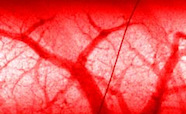 laboratories conduct research concerned with the regulation of cardiovascular and respiratory function in both health and disease.
laboratories conduct research concerned with the regulation of cardiovascular and respiratory function in both health and disease.
Specific areas of interest include:
- How hormonal, neuronal and intrinsic processes control the heart
- Understanding the vasculature of the lungs
- Describing calcium regulation of heart rhythms
- Identifying pathogenic mechanisms operating in diseases such as obesity, diabetes, heart failure, hypertension and cardiac arrhythmia.
Email physiology@otago.ac.nz
Web otago.ac.nz/physiology/research/
Mātai Hāora – Centre for Redox Biology and Medicine
(Formerly the Centre for Free Radical Research)

We carry out research on the regulation of oxidative stress and redox metabolism in cancer cells, and how these pathways may be manipulated to assist treatment.
Research Projects:
- Alterations in the redox metabolism of cancer cells during metastasis and the development of drug resistance
- Targeting the antioxidant systems of cancer cells
- Vitamin C and the regulation of cancer cell epigenetics
- Role of innate immune cells in the promotion and progression of cancer
- Regulation of cell death pathways
Email mark.hampton@otago.ac.nz
Web otago.ac.nz/christchurch/research/freeradical
Centre for Health, Activity and Rehabilitation Research (CHARR)
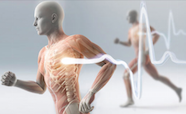 Alongside our high quality postgraduate and research programmes, research at the School of Physiotherapy is managed through our dedicated Centre for Health, Activity, and Rehabilitation Research. Research and knowledge transfer are integral parts of the School of Physiotherapy's activities.
Alongside our high quality postgraduate and research programmes, research at the School of Physiotherapy is managed through our dedicated Centre for Health, Activity, and Rehabilitation Research. Research and knowledge transfer are integral parts of the School of Physiotherapy's activities.
Research project areas:
- Physical Activity and Health
- Healthy Ageing
- Sports Concussion and Injury Prevention
- Clinical Biomechanics and Medical Technologies
Email donna.keen@otago.ac.nz
Web otago.ac.nz/physio/research
Centre for Health Systems and Technology
 The Centre for Health Systems and Technology (CHeST) has a particular focus on the applied end of health system and technology research, supporting the translation of research into practice.
The Centre for Health Systems and Technology (CHeST) has a particular focus on the applied end of health system and technology research, supporting the translation of research into practice.
CHeST features five core themes:
- Health Care Delivery
- Health System Architecture, Management, and Performance
- Health Quality, Safety, and Community Engagement
- Health Workforce
- Health Technology
Email chest@otago.ac.nz
Web otago.ac.nz/healthsystems
Centre for Translational Research
 The Centre for Translational Research (CTR) is a central research facility at the University of Otago, Wellington. It is designed to forge world-class research programmes that will accelerate the transfer of clinically-relevant scientific knowledge.
The Centre for Translational Research (CTR) is a central research facility at the University of Otago, Wellington. It is designed to forge world-class research programmes that will accelerate the transfer of clinically-relevant scientific knowledge.
Translation of non-clinical research that results in real world clinical applications is a major challenge for biomedical researchers. With increasing sub-specialisation in both medical and basic biomedical disciplines, such knowledge transfer can become fragmented unless concerted efforts are made to promote their integration. A hallmark of those involved in the CTR is a willingness to collaborate on projects which utilise both scientific and clinical expertise. This is in recognition of the importance we believe translational research provides in generating answers to clinical problems.
The following topics are of particular interest:
- Energy and metabolism
- Neurocritical care
- Cardiovascular genetics
- Exercise and environmental physiology
- Clinical physiology and biomedical engineering
- Paediatrics
- Acute and chronic airways disease
- Sleep medicine
Email ctr@otago.ac.nz
Web otago.ac.nz/uow-physiology
Christchurch Heart Institute
 Here at the Christchurch Heart Institute we help save thousands of lives through research into improved diagnosis, better prediction and advanced treatments for heart disease. Our team of internationally-renowned experts directly play a role in increasing the survival of New Zealanders with heart disease.
Here at the Christchurch Heart Institute we help save thousands of lives through research into improved diagnosis, better prediction and advanced treatments for heart disease. Our team of internationally-renowned experts directly play a role in increasing the survival of New Zealanders with heart disease.
Our research is focused on:
- New blood tests for heart attack diagnosis and prognosis
- Using new methods for treating heart failure and improving outcomes
- Understanding the genetics of heart disease; why heart disease runs in some families
Email chi@otago.ac.nz
Web otago.ac.nz/chch-heart-institute
D4 Network
 D4—Diagnostics, Drugs, Devices and Discovery focuses on translational research for improving care via:
D4—Diagnostics, Drugs, Devices and Discovery focuses on translational research for improving care via:
- Creating novel point-of-care diagnostics and devices enabling targeted and selective treatments
- Developing smart drug delivery systems and devices to improve and optimise therapy
- Drug discovery for innovative treatments
The network draws together the disciplines of bioengineering, pharmaceutical science and drug discovery with an emphasis on collaborating with commerce and industry.
Email joel.tyndall@otago.ac.nz
Web otago.ac.nz/d4
Edgar Diabetes and Obesity Research (EDOR)
 Our mission is to make a significant contribution to reducing the global burden of diabetes and obesity through research and dissemination of knowledge. We aim to reduce the prevalence, and to improve the management, of diabetes and obesity by finding new ways to prevent and treat these conditions. By striving for research excellence and encouraging international collaboration we can bring the greatest benefit to New Zealanders and the wider world. We're sharing our discoveries with individuals, communities, teachers, health professionals and policymakers.
Our mission is to make a significant contribution to reducing the global burden of diabetes and obesity through research and dissemination of knowledge. We aim to reduce the prevalence, and to improve the management, of diabetes and obesity by finding new ways to prevent and treat these conditions. By striving for research excellence and encouraging international collaboration we can bring the greatest benefit to New Zealanders and the wider world. We're sharing our discoveries with individuals, communities, teachers, health professionals and policymakers.
Email diabetes@otago.ac.nz
Web otago.ac.nz/diabetes
Genetics Otago
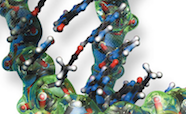 Genetics lies at the root of many human diseases. At Genetics Otago, we have a remarkable breadth of human genetics research studying both complex and single-gene diseases. As an example, researchers at the Cancer Genetics Laboratory are world-leaders in their field.
Genetics lies at the root of many human diseases. At Genetics Otago, we have a remarkable breadth of human genetics research studying both complex and single-gene diseases. As an example, researchers at the Cancer Genetics Laboratory are world-leaders in their field.
Our human developmental disease research provides an insight into how human embryos work, and how that is related to human health. We study both the genetics and epigenetics of human development and cell division.
Pharmocogenomics is another major area of research—this is a modern approach to understanding the side-effects of, and sensitivities to, drug treatments—by analysing the effect of a person's genes on their response to drugs.
Email go@otago.ac.nz
Web otago.ac.nz/genetics
Hauora Manawa / Heart Health: The Community Heart Study
 This research aims to collect data on the current levels of established heart disease, levels of previously undiagnosed diabetes, cardiovascular disease and their risk factors in randomly-selected population samples from two diverse Maori communities, Ngati Kahungunu ki Wairoa in Hawkes Bay, and Mana Whenua ki Waitaha in Canterbury, as well as a non-Maori control group in Canterbury.
This research aims to collect data on the current levels of established heart disease, levels of previously undiagnosed diabetes, cardiovascular disease and their risk factors in randomly-selected population samples from two diverse Maori communities, Ngati Kahungunu ki Wairoa in Hawkes Bay, and Mana Whenua ki Waitaha in Canterbury, as well as a non-Maori control group in Canterbury.
Web otago.ac.nz/christchurch/research/mihi/research/otago015860.html
Health, Environment and Infection Research Unit (HEIRU)
 The Health, Environment and Infection Research Unit is a collaboration of researchers focused on the impact of infectious diseases and adverse environmental factors on population health. We use a range of research methods to investigate these health concerns; to identify effective interventions to reduce the burden of disease and inequalities; and to support the move to greater environmental sustainability. HEIRU aims to provide evidence-based recommendations and advice to support New Zealand and international agencies and practitioners in their disease prevention and control activities.
The Health, Environment and Infection Research Unit is a collaboration of researchers focused on the impact of infectious diseases and adverse environmental factors on population health. We use a range of research methods to investigate these health concerns; to identify effective interventions to reduce the burden of disease and inequalities; and to support the move to greater environmental sustainability. HEIRU aims to provide evidence-based recommendations and advice to support New Zealand and international agencies and practitioners in their disease prevention and control activities.
Email michael.baker@otago.ac.nz
Web otago.ac.nz/wellington/publichealth/research/heiru
Healthier Lives – He Oranga Hauora National Science Challenge 2015–2024
 The Healthier Lives – He Oranga Hauora National Science Challenge was a national research collaboration dedicated to achieving healthier lives for all New Zealanders.
The Healthier Lives – He Oranga Hauora National Science Challenge was a national research collaboration dedicated to achieving healthier lives for all New Zealanders.
It has contributed evidence, technology and tools that can help to achieve more equitable health outcomes in Aotearoa New Zealand.
The website remains available as a resource and for archived materials.
Health Promotion and Policy Research Unit (HePPRU)
 The Health Promotion and Policy Research Unit aims to foster excellence in research in health promotion and public health policy. HePPRU works in collaboration with policy-makers and policy advocates to advance the good health of the peoples of Aotearoa/New Zealand through independent, critical and innovative research, teaching, and community service.
The Health Promotion and Policy Research Unit aims to foster excellence in research in health promotion and public health policy. HePPRU works in collaboration with policy-makers and policy advocates to advance the good health of the peoples of Aotearoa/New Zealand through independent, critical and innovative research, teaching, and community service.
Email louise.signal@otago.ac.nz
Web otago.ac.nz/heppru
Heart Otago
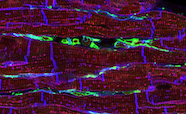 Heart Otago is comprised of cardiovascular researchers and clinicians located at the University of Otago and Dunedin Hospital. The goal of the group is to expand upon traditional cell and animal models to better understand the molecular nature of cardiac disease in patients with heart disease and to translate the laboratory-based cardiovascular research into the clinical setting.
Heart Otago is comprised of cardiovascular researchers and clinicians located at the University of Otago and Dunedin Hospital. The goal of the group is to expand upon traditional cell and animal models to better understand the molecular nature of cardiac disease in patients with heart disease and to translate the laboratory-based cardiovascular research into the clinical setting.
The strong link between fundamental researchers and clinicians allows the group to study cardiac disease from genetic mutations within a single protein, through tissue and animal models, to patients presenting with a range of cardiac anomalies.
Investigations involve a wide range of techniques including:
- Electrophysiology
- Cell imaging
- Genetic and biomarker screening
- Multicellular human tissue and whole animal heart function measurements
- Human and animal in vivo cardiac function via echocardiography
Email heart@otago.ac.nz
Web otago.ac.nz/heart-otago
He Kainga Oranga / Housing and Health Research Programme
 He Kainga Oranga, the Housing and Health Research Programme, examines and clarifies the links between Housing and Health. Although the association between poor housing and ill health is known, the links that make up the causal chain have until recently been poorly understood. Conducting our own studies and examining existing evidence enables us to identify and evaluate housing-related interventions to improve individual, family and community health. Our multi-disciplinary team has expertise in both qualitative and quantitative disciplines.
He Kainga Oranga, the Housing and Health Research Programme, examines and clarifies the links between Housing and Health. Although the association between poor housing and ill health is known, the links that make up the causal chain have until recently been poorly understood. Conducting our own studies and examining existing evidence enables us to identify and evaluate housing-related interventions to improve individual, family and community health. Our multi-disciplinary team has expertise in both qualitative and quantitative disciplines.
Email healthyhousing@otago.ac.nz
Web healthyhousing.org.nz
Long-term condition management research
 The focus of this research group, in the Centre for Postgraduate Nursing, is the development of evidence-based healthcare to minimise the impact of chronic health needs on people's lives. Research explores symptom experience, risk assessment, preventative care and symptom control issues, with particular emphasis on the enhancement of patient self-management strategies.
The focus of this research group, in the Centre for Postgraduate Nursing, is the development of evidence-based healthcare to minimise the impact of chronic health needs on people's lives. Research explores symptom experience, risk assessment, preventative care and symptom control issues, with particular emphasis on the enhancement of patient self-management strategies.
Email mandy.wilkinson@otago.ac.nz
Web otago.ac.nz/christchurch/departments/nursing/research
Māori / Indigenous Health Innovation (MIHI)
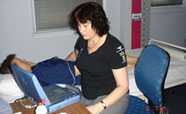 MIHI is based at the University of Otago, Christchurch. We undertake and support research that explores Māori health inequities and building excellence in research evidence that contributes to Māori health advancement.
MIHI is based at the University of Otago, Christchurch. We undertake and support research that explores Māori health inequities and building excellence in research evidence that contributes to Māori health advancement.
- Heart Health: The Hauora Manawa community heart study
- Medical education research
- Chronic kidney disease
- Respiratory disease
- Mental health
- Community service
Web otago.ac.nz/christchurch/research/mihi
Otago Genomics Facility
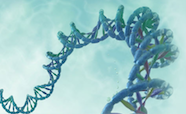 We provide expertise and sequencing resources to New Zealand researchers and industry including:
We provide expertise and sequencing resources to New Zealand researchers and industry including:
- Project design and advice
- Illumina HiSeq sequencing
- Illumina MiSeq sequencing
- Nanostring nCounter Analysis System
The Otago Genomics Facility is an Illumina Propel-certified service provider for Illumina HiSeq 2500 and MiSeq sequencing platforms, and is also a Nanostring nCounter Analysis System core facility.
Email genomics@otago.ac.nz
Web otago.ac.nz/genomics
Otago Micro and Nanoscale Imaging (OMNI)
 Four well-established and highly respected research-expertise providers have joined together under one umbrella to offer:
Four well-established and highly respected research-expertise providers have joined together under one umbrella to offer:
All the expertise, highly sophisticated instrumentation, and stellar support remains in place, as do the existing locations of services on our Dunedin campus.
The four units have collaborated on a new website as a central repository of their capabilities and achievements.
For all you need to know about what can be offered, who can help, what services, training, and specialist expertise and advice is available, please contact us.
Email omni@otago.ac.nz
Web otago.ac.nz/omni
Otago Vascular Diagnostics
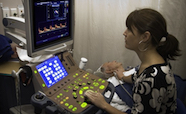 We are a team of vascular surgeons, technologists and research staff using various diagnostic investigations to research the causes and management of vascular conditions.
We are a team of vascular surgeons, technologists and research staff using various diagnostic investigations to research the causes and management of vascular conditions.
The unit provides clinical diagnostic services to the Southern District Health Board, and to the wider community, to assist in the diagnosis and treatment of vascular diseases such as:
- Deep vein thrombosis
- Carotid artery disease
- Peripheral vascular disease
- Aortic aneurysms
- Varicose veins and venous ulcer
Our services include:
- Medical imaging using ultrasound to capture real-time images of blood vessels and blood flow
- Physiological testing to measure how well the vascular system is functioning both during exercise and at rest
- Treatment of varicose veins and vascular malformations using endovenous laser therapy (EVLT) and sclerotherapy
The unit is part of the Vascular Research Group and works closely with other research groups at local, national and international levels.
Email ovd@otago.ac.nz
Web otago.ac.nz/dsm-surgery/research/otago-vascular-diagnostics
Pacific Health Research at Otago
 Talofa lava, kia orana, malo e lelei, fakaalofa lahi atu, bula vinaka, malo ni, halo ola keta, mauri, fakatalofa atu, and warm Pacific greetings!
Talofa lava, kia orana, malo e lelei, fakaalofa lahi atu, bula vinaka, malo ni, halo ola keta, mauri, fakatalofa atu, and warm Pacific greetings!
We're celebrating our Pacific health research in the Division of Health Sciences.
Learn about what's going on in Pacific health research, how we can support researchers, and where to start if you're excited about research.
Email vot@otago.ac.nz
Web otago.ac.nz/pacific-health-research
Pharmacology and Toxicology
 Research at the Department of Pharmacology and Toxicology uses state-of-the-art technologies, including the use of in-vivo disease models, to undertake integrative, cellular and molecular investigations aimed at understanding animal and human pathophysiology (and to delineate targets for novel drugs).
Research at the Department of Pharmacology and Toxicology uses state-of-the-art technologies, including the use of in-vivo disease models, to undertake integrative, cellular and molecular investigations aimed at understanding animal and human pathophysiology (and to delineate targets for novel drugs).
Academic and research-support staff of the Department are engaged in high quality, internationally-recognised research focused on the following themes:
- Cancer Research
- Cannabionids and Neuropathic Pain Research
- Cardiorenal and Diabetes Research
- Free Radical Research
- Neuroscience Research
- Neurotoxins / Seizures / Stroke Research
- Seizures / SUDEP / Stroke Research
- Stroke
- Vestibular and Auditory Research
Email pharmacology@otago.ac.nz
Web otago.ac.nz/phal
Pharmacy
 The School of Pharmacy has a very active research programme with disciplines ranging from science to humanities.
The School of Pharmacy has a very active research programme with disciplines ranging from science to humanities.
We have three main research areas:
- Pharmaceutical Sciences: drug discovery, drug metabolism and drug action to extend the range of drugs available and to provide a scientific basis for the quality use of medicines and bioactive substances.
- Clinical Pharmacy: concerned with patient care and the optimisation of medicine use in order to promote health and wellness, and prevent disease.
- Social Pharmacy: our research focuses mainly on access to, and use of medicines.
Email pharmacy.research@otago.ac.nz
Web otago.ac.nz/pharmacy/research
Research commercialisation and innovation
 The Division of Health Sciences promotes research excellence by encouraging the development of products, services, and policies that provide health, social, and economic benefits.
The Division of Health Sciences promotes research excellence by encouraging the development of products, services, and policies that provide health, social, and economic benefits.
Services include:
- Support for staff within the Division of Health Sciences
- Research and Enterprise Office
- Opportunities for students
- Support for emerging entrepreneurs and ideas
- Callaghan Innovation
Professor Paul Glue is Health Sciences Associate Dean for Research Commercialisation. He provides strategic overview for the Division in the translation of these discoveries into practical applications.
Email paul.glue@otago.ac.nz
Web otago.ac.nz/healthsciences/research/innovation
Research Infrastructure Centre
 Our Research Infrastructure Centre offers specialist expertise, technology and facilities in protein research, genomics, imaging, and biomedical research.
Our Research Infrastructure Centre offers specialist expertise, technology and facilities in protein research, genomics, imaging, and biomedical research.
We support optimum design and analysis of your research, and provide skill development opportunities.
Our academic leadership is of the highest calibre and we have extensively experienced and skilled staff.
Our services are available to researchers in institutions, industry, government and private companies.
Email ric.admin@otago.ac.nz
Web otago.ac.nz/healthsciences/research/ric
Research in Pharmacoepidemiology (RIPE)
 The RIPE group uses real-world data to evaluate health outcomes at a population level. The group covers a broad scope of research investigating:
The RIPE group uses real-world data to evaluate health outcomes at a population level. The group covers a broad scope of research investigating:
- Drug utilisation
- Prescribing trends
- Prescription adherence
- Guidelines adherence
- Comparative effectiveness
Our researchers are keen in adopting initiatives to advance pharmacoepidemiological research.
Our research group is adept at using propensity score matching, marginal structural models, and disease scores risks.
Email ripegroup@otago.ac.nz
Web otago.ac.nz/ripe
Search the Health Sciences Expertise Database
 The Division of Health Sciences benefits from its high calibre of staff and their wide range of skills and research expertise.
The Division of Health Sciences benefits from its high calibre of staff and their wide range of skills and research expertise.
Our Staff Expertise Database provides details on University of Otago, Health Sciences staff. Each staff profile provides information on qualifications, current academic position, contact details, and a summary of research and publications.
You can search our database by keyword (eg cardiovascular) or by name.
Health Sciences expertise database
Stroke medicine
 Elevated blood pressure is the strongest risk factor for stroke. It is uncertain whether lowering blood pressure in the first week after a stroke will improve or worsen clinical outcomes. Nitric oxide is a vasodilator for both cerebral and systemic blood vessels. Nitric oxide also possesses anti-apoptotic properties and directly modulates neural function.
Elevated blood pressure is the strongest risk factor for stroke. It is uncertain whether lowering blood pressure in the first week after a stroke will improve or worsen clinical outcomes. Nitric oxide is a vasodilator for both cerebral and systemic blood vessels. Nitric oxide also possesses anti-apoptotic properties and directly modulates neural function.
Our trial The Efficacy of Nitric Oxide in Stroke (ENOS) has enrolled over 3,800 patients worldwide in an effort to elucidate the best way to treat hypertension in the first week after a stroke. ENOS also hopes to determine whether nitric oxide treatment will provide a clinically significant improvement in patient function 90 days post stroke.
Email wendy.busby@southerndhb.govt.nz
Web otago.ac.nz/dsm-medicine/research/otago046633.html
Stroke neurology
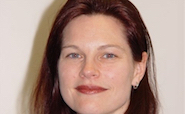 Dr Anna Ranta's research focuses on stroke and transient ischemic attack (TIA) epidemiology and service delivery optimisation, service integration, health equity, and knowledge translation. She is currently a stroke neurologist with Capital Coast DHB alongside her senior lecturer role with University of Otago, Wellington.
Dr Anna Ranta's research focuses on stroke and transient ischemic attack (TIA) epidemiology and service delivery optimisation, service integration, health equity, and knowledge translation. She is currently a stroke neurologist with Capital Coast DHB alongside her senior lecturer role with University of Otago, Wellington.
Current projects include:
- Analysis of the NZ Stroke thrombolysis register
- Assessing an atrial fibrillation electronic decision-support tool (HRC project with cardiologist Professor Ralph Stewart)
- Assessing motivational interviews post-stroke (HRC Take Charge Study)
- Assessing TIA / stroke electronic decision support in primary care including the use of TIA scores (HRC FASTEST trial)
- Evaluating NZ Telestroke pilot (MOH)
- TIA incidence in greater Auckland (ARCOS IV)
- Triple antiplatelet therapy in secondary prevention of stroke (International TARDIS trial)
Email anna.ranta@otago.ac.nz
Web otago.ac.nz/healthsciences/expertise/profile/index.html?id=2356
Te Rōpū Rangahau Hauora A Eru Pōmare
 Te Rōpū Rangahau Hauora a Eru Pōmare strives to create a Kaupapa Māori space committed to improving Māori health outcomes and eliminating inequalities through quality science and ongoing theoretical development. It takes a rights-based approach consistent with the Treaty of Waitangi, and is engaged with community through a spectrum of influence from community development, policy advocacy, research dissemination and Māori health research workforce development.
Te Rōpū Rangahau Hauora a Eru Pōmare strives to create a Kaupapa Māori space committed to improving Māori health outcomes and eliminating inequalities through quality science and ongoing theoretical development. It takes a rights-based approach consistent with the Treaty of Waitangi, and is engaged with community through a spectrum of influence from community development, policy advocacy, research dissemination and Māori health research workforce development.
Email bridget.robson@otago.ac.nz
Web otago.ac.nz/wellington/publichealth/research/erupomare
Vascular, Endovascular, and Transplant Surgery (VETS)
 Members are engaged in clinical and laboratory-based research in collaboration with established research groups at University of Otago, Christchurch, and the University of Canterbury.
Members are engaged in clinical and laboratory-based research in collaboration with established research groups at University of Otago, Christchurch, and the University of Canterbury.
Clinical research themes include:
- Prioritisation for surgery
- Vascular audit and continuous quality improvement
- Clinical decision modelling in vascular surgery (focused around abdominal aortic aneurysm)
- Wound management (in collaboration with Nurse Maude)
Our research includes collaborations with the University of Canterbury Centre for Bioengineering and Biological Sciences (The Growth Dynamics of Atherosclerotic Plaque) and the Angiogenesis Research Group (University of Otago, Christchurch) and the Department of Plastic Surgery (Skin cancers in renal transplant recipients).
Email surgery.uoc@otago.ac.nz
Web otago.ac.nz/christchurch/research/surgery/index.html#vascular
Vascular Research Group
 The Vascular Research Group, in the Department of Surgical Sciences, is headed by Professor Andre van Rij and Professor Greg Jones, and conducts a wide range of research in the fields of vascular biology, genetics, and physiology.
The Vascular Research Group, in the Department of Surgical Sciences, is headed by Professor Andre van Rij and Professor Greg Jones, and conducts a wide range of research in the fields of vascular biology, genetics, and physiology.
This multidisciplinary group has a wide range of basic science and clinical skills, including molecular biology (genomics, transcriptomics, and proteomics), immunohistopathology, cell culture, and vascular physiology (ultrasonography).
The Vascular Research Group's primary research interests:
- The genetic basis of different forms of vascular disease including abdominal aortic aneurysm, coronary artery disease, lower limb arterial disease, stroke, and varicose veins
- Determining the early processes in the formation of atherosclerosis (arterial disease)
- The identification of circulating markers of vascular susceptibility and/or post-interventional outcome
- Determining the pathophysiology of venous disease
The Vascular Research Group is currently funded by the Health Research Council of New Zealand.
Our research group is a leading member of the Vascular Research Consortium of New Zealand, which aims to support collaborative vascular networks nationally.
Email andre.vanrij@otago.ac.nz
Web otago.ac.nz/dsm-surgery/research/vascular
Virtual Health Information Network
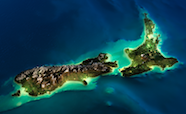 The Virtual Health Information Network (VHIN) assists researchers to do high quality health research using the Integrated Data Infrastructure (IDI) and other administrative health data.
The Virtual Health Information Network (VHIN) assists researchers to do high quality health research using the Integrated Data Infrastructure (IDI) and other administrative health data.
A deeper understanding of the IDI and increased awareness of data quality issues can be gained via our resources including:
- Website guides
- Online discussions
- Analytical code available from VHIN research
- Meetings about current IDI research
Email vhin@otago.ac.nz
Web vhin.co.nz
Wellington Cardiovascular Research Group
 Cardiovascular disease remains the leading cause of death, and a significant cause or morbidity in the western world. The Wellington Cardiovascular Research Group undertakes basic science projects, translational research and clinical research into ischaemic heart disease, heart failure and cardiac arrhythmia.
Cardiovascular disease remains the leading cause of death, and a significant cause or morbidity in the western world. The Wellington Cardiovascular Research Group undertakes basic science projects, translational research and clinical research into ischaemic heart disease, heart failure and cardiac arrhythmia.
Our current areas of research interest include:
- Platelet reactivity and inflammation in ischaemic heart disease
- Technical aspects of interventional cardiology
- Mechanisms of ventricular arrhythmia
- Provision of implantable cardioverter defibrillator therapy
- Applications of novel imaging techniques to aid in diagnostic processes
- Scoring tools for risk stratification in cardiac disease
Email peter.larsen@otago.ac.nz
Web otago.ac.nz/wellington/research/wcrg